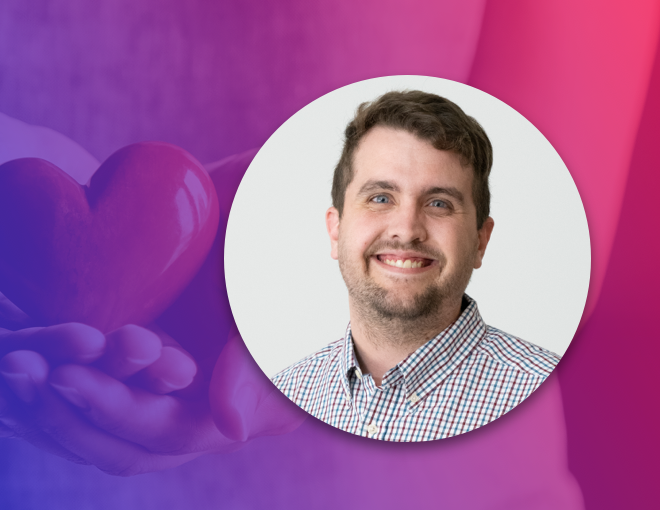Employers, who provide healthcare for about half of all Americans, know well that there are a number of challenging conditions that lead to higher costs, absenteeism or presenteeism, and worsening health outcomes. That’s why when an employee is facing a chronic condition like diabetes or hypertension, it is important to help guide them to the right care, provider, or service they need.
But what if an employee’s need is not physical?
As we wrap up Mental Health Awareness Month, it is an opportune time to understand and acknowledge the challenges mental health conditions present in the workforce. While no less debilitating than physical conditions, far too often people who are facing a mental health condition do not receive the appropriate treatment or care.
The most common mental health conditions in the workforce — and in the world — are anxiety and depression. Both conditions are associated with higher healthcare costs, decreased productivity and increased absenteeism, and higher risk for other mental health and substance use disorders, as well as suicide.
Employers have a tremendous opportunity to change lives by offering a health benefits program that addresses mental health conditions. Helping employees navigate the complex mental health care landscape — whether it is reducing stress, finding the right provider, or seeking medical treatment — is critical.
An important part of this equation is offering tools to employees that help them manage stress or build resilience. We spoke with our ecosystem partner meQuilibrium about what that means for employers and, importantly, what they can do to address mental health conditions among employees.
1. meQuilibrium was founded to help employees manage their stress and build resilience. Can you tell us more about meQuilibrium and its solutions? How does meQuilibrium personalize stress management solutions for employees?
meQuilibrium’s mission is to apply the science of resilience to help individuals, teams, and organizations master the skills necessary to overcome any obstacle, manage stress, and gain the adaptive capacity to change their mindsets and behaviors, which in turn leads to higher levels of employee engagement, productivity, and performance.
meQuilibrium is based on 25 years of behavioral psychology and neuroscience research and has a clinically-validated approach to building resilience for each individual, at scale, on a digital cloud-based platform. Our program starts with a proprietary, science-based Assessment that dynamically generates a personalized resilience Profile and Journey for every user.
Through advanced analytics, meQuilibrium identifies the skills and learning tracks that each person needs, dynamically sequenced. Behaviorally driven emails and push notifications further personalize the Journey and encourage engagement. Additionally, meQuilibrium’s popular Cup of Calm weekly e-newsletter reinforces key concepts relevant to the program and users’ daily lives while our monthly “Calm Cast” Series offers live 30-minute interactive webcasts facilitated by meQuilibrium experts on a different topic each month.
2. Your solutions focus on teaching and refining resilience in employee populations. How does meQuilibrium track progress and measure success in helping employees?
Resilience has a measurable protective effect. Our peer-reviewed study proves the impact resilience has in even the most stressful work environments. The study shows resilience has an even stronger protective effect on depression, absence, and productivity in high-strain work environments where demand is high and employee control is low. When resilience is high, employees are 10% to 20% less likely to experience depression, absence, and productivity loss.
meQuilibrium has strong ongoing engagement with users, effectively builds resilience, and has demonstrated a mathematic relationship between time spent in the program and improvement. In a new peer-reviewed article, meQuilibrium demonstrates that the more time people spend in the program, the greater their improvement. With just five hours of training, for example, those with lower pre-program resilience levels could be expected to report an 11% increase in resilience and a 15% and 11% decrease in stress and somatic symptoms, respectively. As written in the article, “this is the first study to document how the degree of exposure to an online resilience intervention influences outcomes, rather than treatment versus control.”
3. Why is it important for employers thinking about their employee benefits program to consider a resiliency solution?
In turbulent times, businesses need resilient people and teams-people equipped to navigate the constant challenges of work and life. Employers can unleash the potential of their people and organizations with meQuilibrium’s resilience-based solutions to build engagement, drive performance, and improve holistic wellbeing. With meQuilibrium, employers can equip each of their employees to discover and master the skills they need to overcome any obstacle, increase their ability to manage stress, reduce burnout and improve focus, motivation, and time management.
Research shows that improving resilience has a positive impact on productivity, turnover, and avoidable absence. Across its book of business, meQuilibrium demonstrates an average resilience improvement of 12%. This translates to an ROI of $800 per participant (assumptions: average salary of $50,000, avoidable absences of 6 days, 10% turnover, and average time to fill position of four months).
4. Castlight and meQuilibrium share a similar focus on a personalized, mobile, and easy-to-use user experience. Can you discuss your partnership with Castlight and how your solutions fit into the Castlight ecosystem?
meQuilibrium’s solutions fit nicely within the Castlight Partner Ecosystem, filling gaps in the overall offering to provide Emotional Wellbeing and Human Capital Management programming. Moreover, meQuilibrium’s resilience-training approach with its strong evidence basis can be a driver of engagement in the other programs in the Castlight Partner Ecosystem. Peer-reviewed research has shown that as individuals’ resilience improves, their likelihood to take steps to improve behaviors in other areas of wellbeing such as sleep, nutrition, exercise, medication adherence, etc. also increases.
5. What advice would you give employers as they look for solutions to improve their employee population’s mental health, help them manage stress, and control costs through their benefits program?
Resilience is a learnable skill that meQuilibrium teaches and leverages to help employees gain new skills to thrive in work and life. Resilience is an asset that has universal and aspirational appeal. Stress is commonly accepted as “the new fat,” and most people identify stress as an issue they would like to tackle.
Unlike traditional EAP and behavioral health services, meQuilibrium allows users anonymity, which reduces the stigma often associated with utilization of EAP services in corporate settings while expanding their options with new digital modalities. As a result, a greater number of eligible users will participate in a more cost-effective program yet those individuals at greater risk and needing higher intensity clinical care can be triaged into a client’s existing EAP or other relevant interventions. Our solution can have particular appeal to Millennial workers, now the largest demographic in today’s workforce, who are digital natives.
A happier, healthier, more productive workforce relies on employees who are both physically and mentally well. Fortunately, solutions like meQuilibrium can help employers and employees address the health and financial costs of mental health conditions that are all too prevalent in the workforce. To learn more about meQuilibrium check out their website: https://www.mequilibrium.com/


